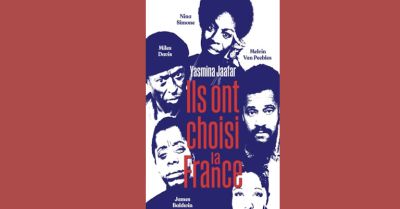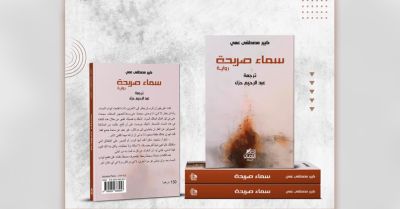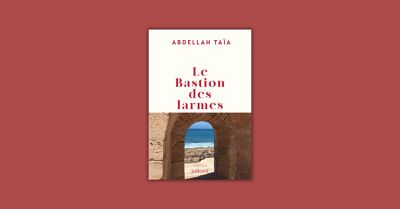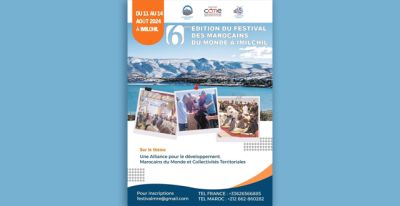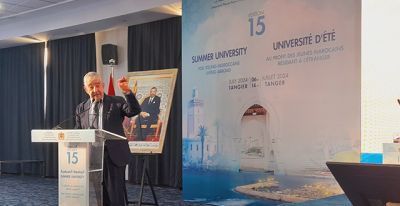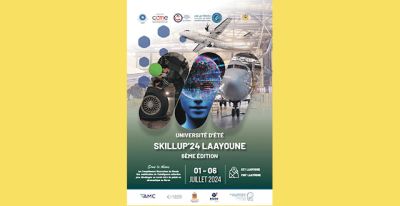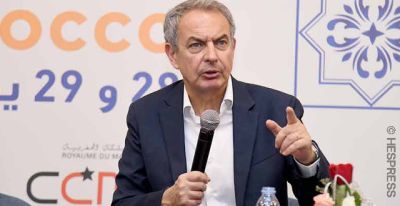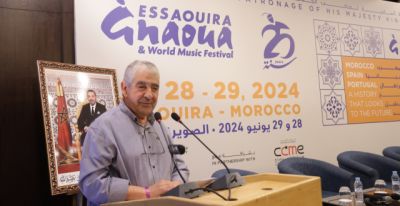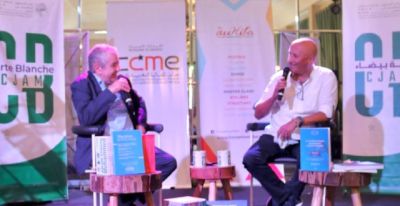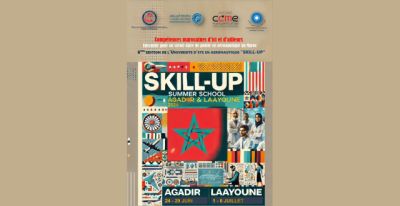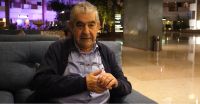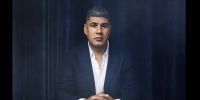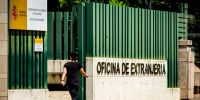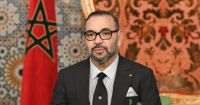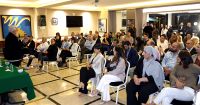« Ils ont choisi la France” (Ed Nouveau Monde) tells the story of five iconic black American figures that shaped the twentieth century's world cultural scene: author James Baldwin, musicians Nina Simone and Miles Davis, film director Melvin Van Peebles and singer Joséphine Baker, who left the United States in search of a better life in France.
The sixth edition of the Moroccans of the World Festival to be held in Imilchil from 11 to 14 August 2024
The sixth edition of the Festival of Moroccans of the World will take place from 11 to 14 August 2024 in Imilchil, with support from the Council of the Moroccan Community Abroad (CCME). Its theme will be "Moroccans of the World and local authorities: a partnership for development".
Tangiers: Opening of the 15th Summer University of Young Moroccans Abroad
Mr Driss El Yazami, President of the Council of the Moroccan Community Abroad (CCME), has taken part to the official launching of the 15th edition of the Summer University for Young Moroccans Living Abroad, which is organised by the Moroccan expatriates section of the Ministry of Foreign Affairs, African Cooperation and Moroccans Abroad, and held from 6 to 14 July 2024, in Tangier.
Speaking at the opening ceremony of the summer university, Mr El Yazmi pointed out to the young people in attendance that they are part of a pluralistic country that has a long history and a deep-rooted monarchy, and whose migration has taken place over more than a century, unlike the generally accepted idea in the countries where they live.
The CCME President outlined the most important phases in the history of Moroccan migration, which began in the mid-19th century with the enlistment of thousands of Moroccans - mainly from the Souss region - in the First World War to fight alongside the French army to free France from occupation and work in the fields and factories of France. He also emphasised the contribution of Moroccan migrants in shaping Moroccan culture during the 20th century, whether in terms of cinema, literature or music, and their contribution to Moroccan political life.
He added that, given the competitive strategies being pursued by European countries to attract human resources, the Kingdom of Morocco also needs to capitalise on the expertise of its diaspora.
He stressed that Morocco had been one of the first countries to develop a policy aimed at its community abroad, adding that this particularity explained the strong relationship that Moroccans maintain with their country of residence, as well as the deep-rootedness and full integration of Moroccans in their country of residence.
In this regard, he recalled the constitutional chapters dealing with Moroccans in the 2011 Constitution, in particular Article 16, which refers to this dual dynamic and stipulates that the State " is committed to strengthening their contribution to developing their homeland, Morocco, and to strengthening the bonds of friendship and cooperation with the governments and societies of the countries where they live...".
Mr El Yazami then told the young participants at the summer university that "the great social challenge facing you and us is to make the Moroccan community abroad a bridge of friendship, cooperation, tolerance and the development of human rights values".
The newsroom
Laâyoune hosts the 6th Aeronautics Summer University
Skill-UP 24, the 6th edition of the Summer University in Aeronautics, is taking place at the Ecole Supérieure de Technologie in Laayoune, with Moroccan and foreign academics and engineers. As well as transferring knowledge and developing new skills and expertise, the aim of this new initiative is to foster the emergence of a forum for exchanges between the elderly and people with physical or mental disabilities.
Essaouira: "The Gnaoua Festival is a powerful lever for peace" José Luis Zapatero
José Luis Rodríguez Zapatero, Spain's former Prime Minister, said that the Gnaoua Festival of Essaouira, with its cultural tradition, is playing an important role as a lever for peace, in a speech at the opening of the 11th Human Rights Forum at the Gnawa and World Music Festival, organised in partnership with the Council of the Moroccan Community Abroad (CCME) on the theme "Morocco-Spain-Portugal: A history with a promising future".
The Forum on Human Rights opens in Essaouira under the theme "Morocco, Spain and Portugal: a history with a promising future".
In partnership with the Council of the Moroccan Community Abroad (CCME), the 11th edition of the Human Rights Forum, which is being held in parallel with the Gnawa and World Music Festival under the theme "Morocco, Spain and Portugal, a history with a promising future", opened in Essaouira on Friday 28 June 2024.
Rabat: Moroccan migration through the lens of history
Mr. Driss El Yazami, the president of the Council of the Moroccan Community Abroad (CCME), was the guest host of the meeting "Moroccans of the world facing new challenges and changes" organized by the Accredited Journalists Club of Morocco (CJAM),Tuesday, June 25, 2024, at the Café La Seine of the Hiba Foundation in Rabat.
THE CCME co-organises the 6th edition of the "SKILL-UP'24" Summer University in Aeronautics
The North American Network of Moroccan Experts in Aeronautics (EMAN Aerospace), Ibnou Zohr University (UIZ), the Council of the Moroccan Community Abroad (CCME) and the National Scientific and Technical Research Centre (CNRST) through the program "International Forum of Moroccan Skills Abroad" (FINCOME), are holding the 6th edition of the "SKILL-UP" Summer University in Aeronautics, taking place this year in Agadir at the Souss Massa Innovation City (24-29 June) and in Laayoune at the “École Supérieure de Technologie'' (1-6 July) on the theme "Moroccan skills from here and elsewhere. Together we can help develop advanced aeronautical know-how in Morocco''.
- Interview with Mr. Driss El Yazami on migration and cinema
- Rachid Benzine awarded the 2024 Grand Prix du Roman Métis
- Spain to legalize 900.000 undocumented migrants over the next three years
- HM the King Delivers Speech to Nation on Green March 49th Anniversary
- Meeting of the “Maison de la diaspora marocaine” on the theme: “Desire of Morocco vs Desire of the Diaspora”.

